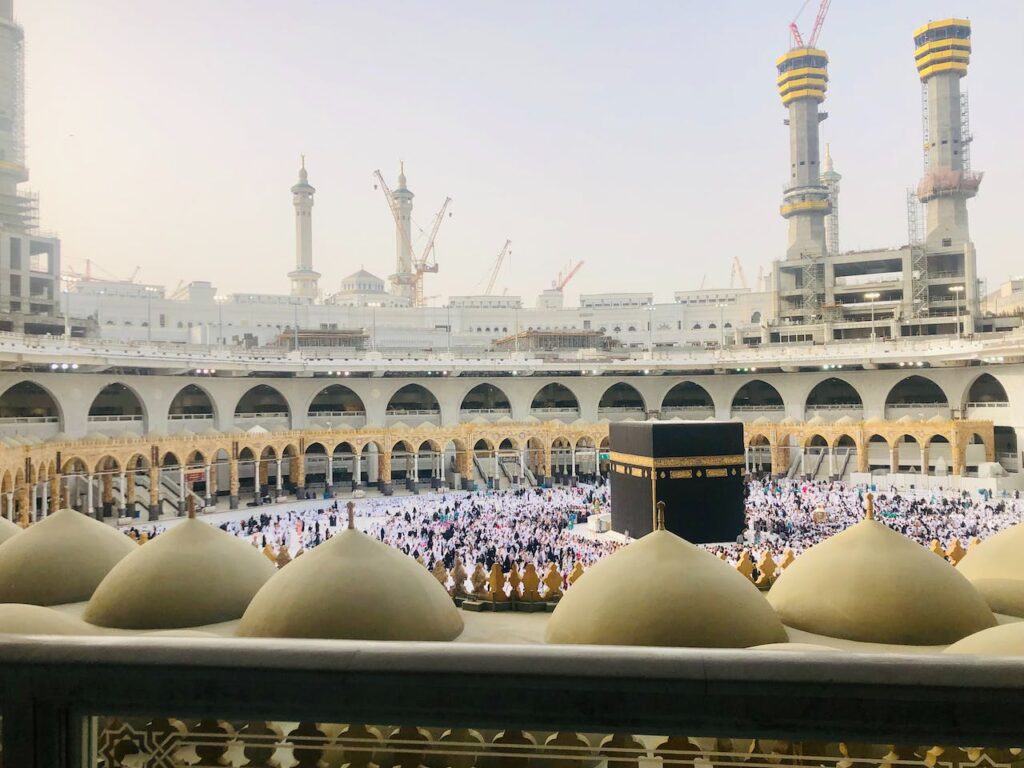Tawaf, an integral part of the Hajj and Umrah rituals, holds immense significance for Muslims around the world. It involves circumambulating the Kaaba, the sacred structure located in the Masjid al-Haram in Mecca, Saudi Arabia. However, as pilgrims embark on this spiritual journey, questions may arise regarding the Tawaf distance and any potential differences on the second floor. This article aims to shed light on these aspects and provide valuable tips for a safe Tawaf experience.
Tawaf Distance
The Tawaf distance refers to the total distance covered during the circumambulation of the Kaaba. It consists of 7 rounds around the Kaaba, starting from the Hajr al-Aswad (the Black Stone) in a counterclockwise direction. The distance for each round is roughly 450 meters, resulting in a cumulative distance of approximately 1.5-4 kilometers. Pilgrims perform Tawaf on the ground floor, encircling the Kaaba at this level.
The distance may be different, depending on the crowd and which floor it is performed
Is Tawaf Distance Different on the Second Floor?
While Tawaf is traditionally performed on the ground floor, some pilgrims may wonder if there are any differences in the Tawaf distance when performed on the second floor. The second floor of the Masjid al-Haram, also known as the Mataf, is an elevated area surrounding the Kaaba. However, it is important to note that regardless of the floor level, the Tawaf distance remains the same.
Whether performed on the ground or on the second floor, each round covers the same distance of approximately 450 meters. However, The full distance may be 0.5-2 km longer.
Tips for a Safe Tawaf
Firstly, Comfortable Footwear
Opt for comfortable and well-fitting shoes that provide adequate support throughout the Tawaf. Avoid wearing new or uncomfortable footwear to prevent blisters and discomfort.
Secondly, Hydration
Mecca’s climate can be hot, especially during the Hajj season. Stay hydrated by carrying a water bottle and drinking regularly to avoid dehydration.
Remember to respect the sanctity of the Masjid al-Haram by disposing of empty bottles appropriately
Thirdly, Physical Preparation
Prioritize physical fitness to ensure you can comfortably complete the Tawaf. Engage in regular exercise, such as walking or jogging, to improve stamina and endurance.
Moreover, Time Selection
Choose an optimal time for Tawaf to avoid overcrowding. Early morning or late evening hours often witness fewer pilgrims, providing a more relaxed and manageable experience.
Lastly, Personal Belongings
Securely store your personal belongings, such as wallets, mobile phones, and passports, to prevent loss or theft. Consider using a small bag or pouch that can be worn across the chest or waist for added security.
In Addition, Tawaf can be a crowded and intense experience. Maintain a patient and calm demeanor, focusing on your spiritual journey. Avoid pushing or rushing, and be considerate of fellow pilgrims.
FAQs
Q1: Can I perform Tawaf at any time of the day or night?
A1: Yes, Tawaf can be performed at any time, as the Masjid al-Haram remains open 24/7. However, certain times, such as after Fajr (dawn) prayer or late at night, are less crowded and provide a more serene ambiance.
Q2: Are there any restrictions on performing Tawaf during the Hajj season?
A2: During the Hajj season, there might be specific times allocated for certain groups, such as men and women, to perform Tawaf. It is advisable to check with the authorities or your Hajj or Umrah operator for any such instructions.
Conclusion
In conclusion, Tawaf is a deeply spiritual act that holds immense significance in the lives of Muslims. Understanding the Tawaf distance, regardless of the floor level, helps maintain an accurate understanding of this ritual. By following the provided tips for a safe Tawaf experience, pilgrims can ensure their physical well-being while immersing themselves in the spiritual atmosphere of the Masjid al-Haram. May your Tawaf journey be blessed and spiritually rewarding.






